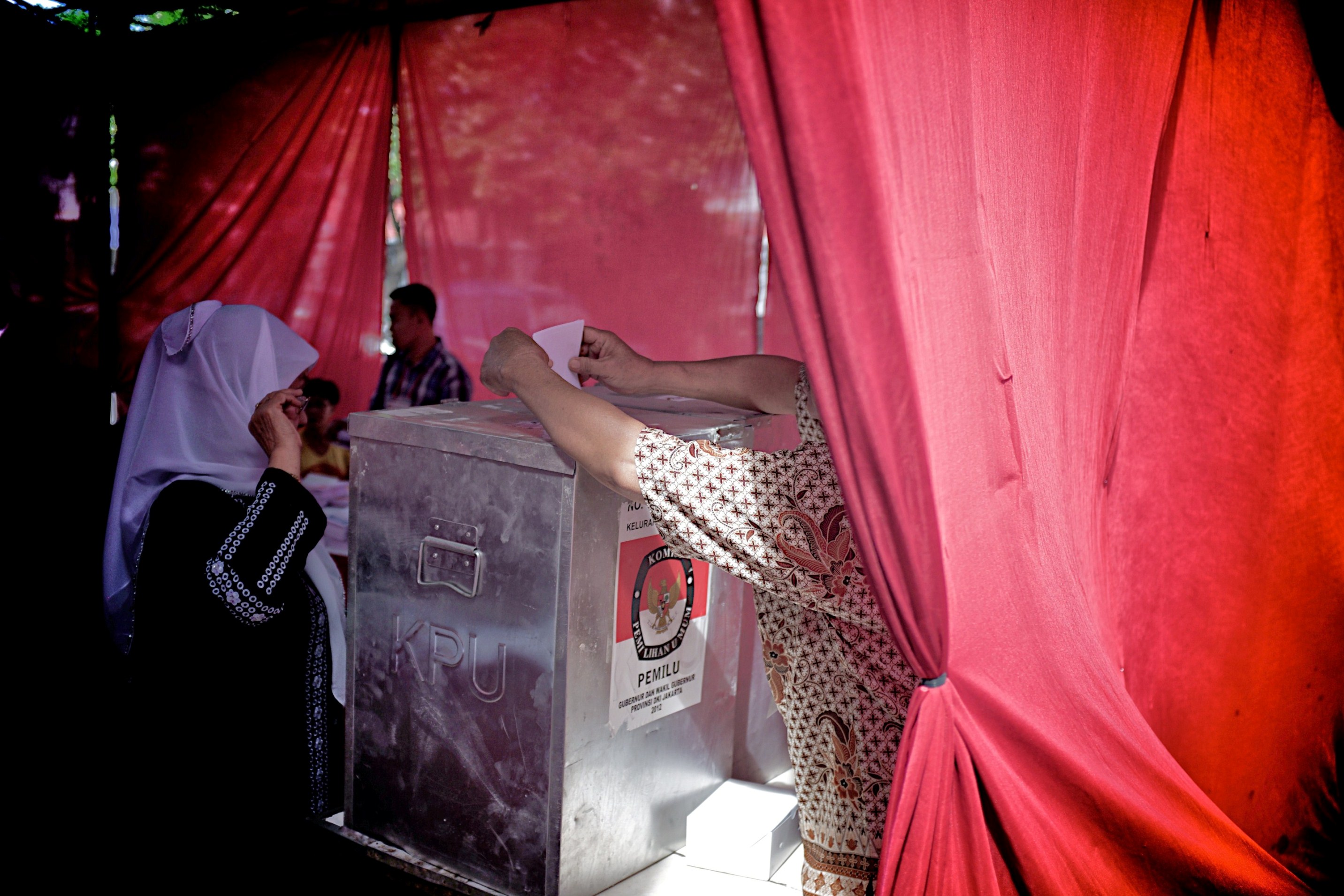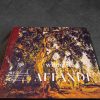Edward Aspinall
Indonesia’s legislative elections offer a window into the deep forces shaping the country, and a glimpse of its political future
Indonesia is part way through its election year, having held its legislative elections on 9 April, and with the country now gearing up for the first round of the presidential polls in July. With more than 235,000 candidates running for seats in national, provincial and district legislatures around the country, the April poll was a massive logistical affair. It was also the culmination of years of effort, expense and stress for a huge number of people. Yet in some ways, the actual results of the election were an anti-climax.
 Elections have become a routine affair – Eduardo Ramirez
Elections have become a routine affair – Eduardo Ramirez
A few parties experienced a drop in their vote (notably, outgoing President Susilo Bambang Yudhoyono’s Partai Demokrat). Some increased (most dramatically, Prabowo Subianto’s Gerindra, and the newcomer party, Nasdem, headed by media tycoon Surya Paloh). As expected, PDIP (Indonesia Democracy Party-Struggle) re-emerged as the country’s leading party, but it attained only about 19 per cent of the vote. Overall, however, there were no dramatic or truly unexpected changes. There was no fundamental reordering of the party system, and Indonesia’s national legislature is arguably more fragmented than ever.
Viewed differently, however, the legislative elections were revealing. In the first place, they cast light on the coming presidential election, an election that will indisputably present Indonesians with an important choice. For many people, the key question of the April election was what it would tell us about the prospects of the two leading presidential candidates: the PDIP’s Joko Widodo, popularly known as Jokowi, and the former general Prabowo Subianto. Second, the elections show us much about how political power is organised and contested in a country where democracy has now become routine. Is politics in Indonesia really just about money and influence-peddling, as many people claim, or is there still a place for programs, policy and even idealism?
Two of our articles in this special edition of Inside Indonesia address the first of these topics: the presidency. Marcus Mietzner, a long-time observer of elite politics in Indonesia, gives a forensic account of Jokowi’s rise to the position of favourite in the presidential contest, and the strong challenge that is now being made by Prabowo Subianto. For many observers, the surprising result about the April election was that the ‘Jokowi effect’ did not provide as strong a boost for the PDIP as many people expected. Suddenly, the prospect of a Prabowo presidency seems more realistic than it did even a few months ago. In this context, Gerry van Klinken explores an under-examined part of Prabowo Subianto’s military past: his time in East Timor over 30 years ago. Prabowo is widely known for having had a hand in the abduction and disappearance of student and youth activists in 1997-98; van Klinken argues he has even more serious charges to respond to, dating back to those East Timor years.
Other articles explore the mechanics of electoral competition in the April poll and what they can tell us about the deeper social and political forces at work in Indonesian democracy. In a piece on ‘money politics’, I survey the ways in which the distribution of money, goods, projects and favours is becoming more and more central to election campaigning throughout the country. Two other pieces present a somewhat different view. Tom Power looks closely at the campaign strategies of two candidates, showing that creative methods and emotional appeals can still help candidates connect with voters and win their support. Kirsty Hoban analyses a dramatic intervention by an organised social movement into the electoral arena: efforts by FSPMI, a militant union representing manufacturing industry workers, to get its leaders elected in Bekasi, an industrial zone to the east of Jakarta. Finally, Bobby Anderson, a regular Inside Indonesia contributor on Papua, presents a photo essay on election campaigning in Papua’s highlands.
Edward Aspinall (edward.aspinall@anu.edu.au) is a coordinating editor of Inside Indonesia.











